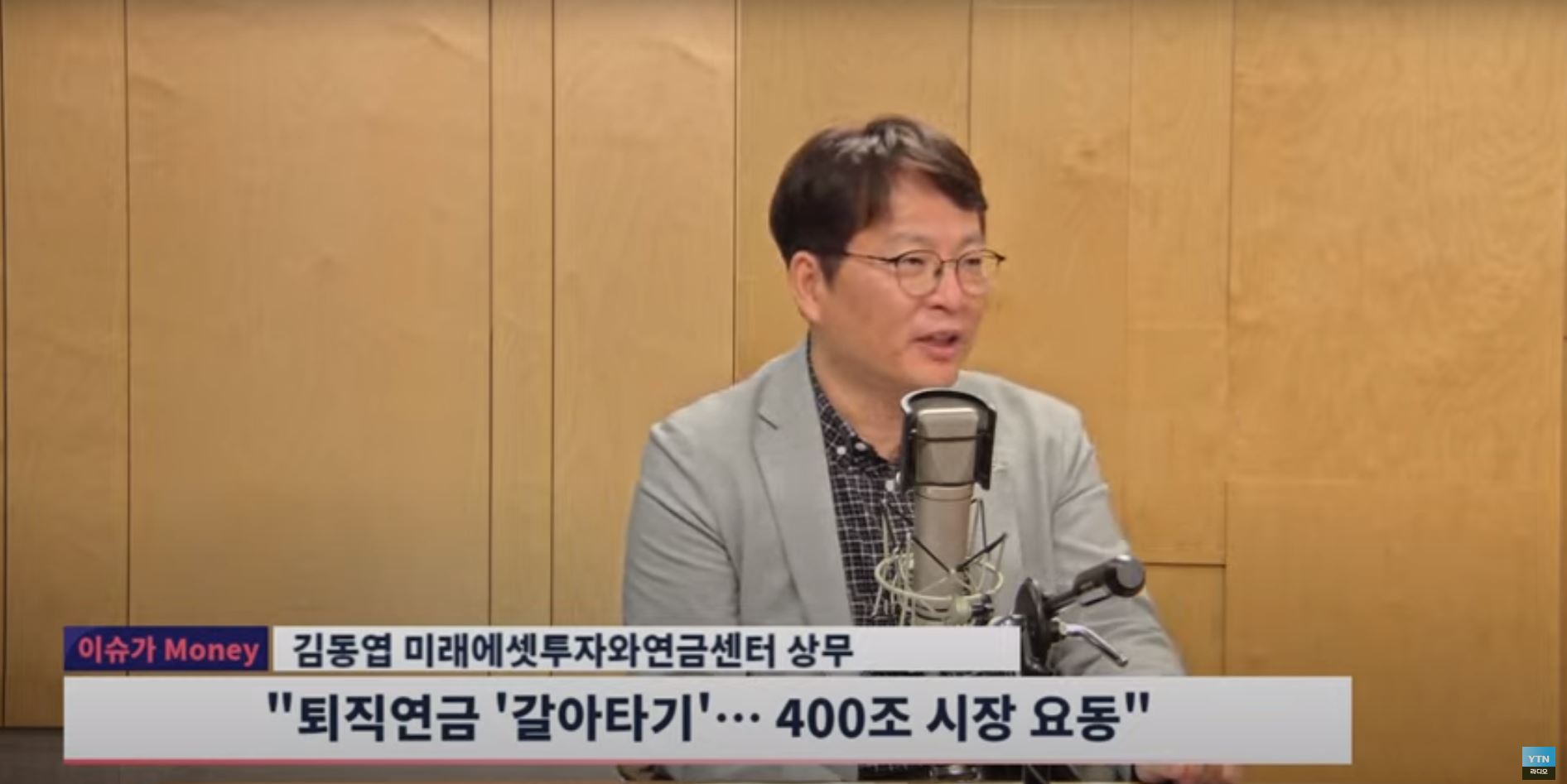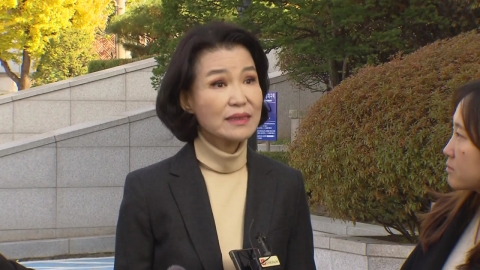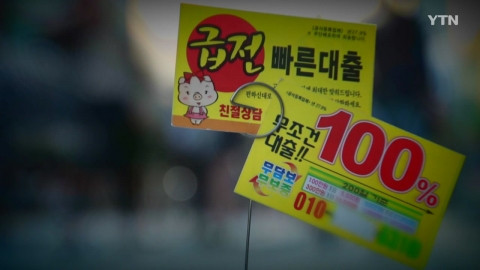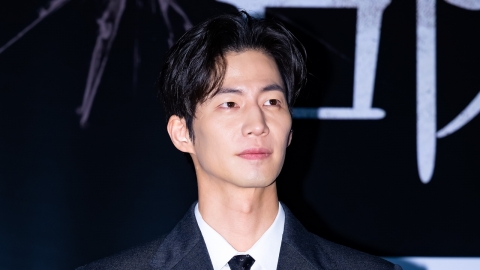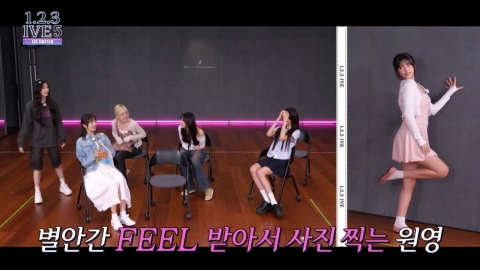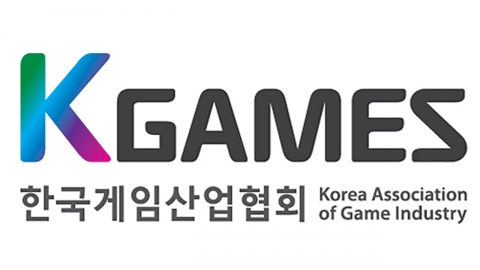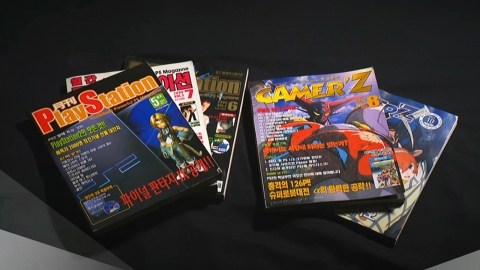□ Broadcast date and time: October 30, 2024 (Wednesday)
□ Host: Lee Ik-seon, Choi Soo-young
□ Castor: Kim Dong-yeop, Managing Director of Mirae Asset Investment and Pension Center
* The text below may differ from the actual broadcast content, so please check the broadcast for more accurate information.
◆ Profit line: The issue is money. This time gives you valuable information that makes money just by listening carefully. From tax reduction methods, real estate stock trends, pensions, and other hit instructors in each field will tell you. Today, Kim Dong-yeop, managing director of Mirae Asset Investment and Pension Center, came out. Welcome.
■ [Kim Dong-yeop] Nice to meet you.
◇ Choi Soo-young: The retirement pension transfer system, which allows retirement pension subscribers to move their pension managers more easily, will be implemented from the 31st, and it's very timely. I'm sure many people are curious, so let's have a time to organize the retirement benefit system in earnest. It's DB type or DC type, so I think it's like a password for IRP here,
◆ Lee Ik-seon: Why is it so hard? Can't you make it easier?
■ Kim Dong-yeop: It's difficult because it's written in English. You can think of it like this. Originally, Korea's law states that if a person who works more than 15 hours a week works for more than a year, the employer must pay retirement benefits when the worker retires. It's stipulated by law and should be given to this person, then this money is not company money, but worker money. Workers have the right to receive this money, but if you keep it inside the company and have a financial problem, you may not receive it on the day you actually need to receive it. So how to keep the money outside the company, and then the workers have safety devices even if the company has a problem. After that, I left the money outside, so let's get it in the form of a pension later on. This is the retirement pension system. But shouldn't someone run the money left outside? You're going to have to invest and do it. So, the management company left it to the management company, so the company can operate it. It's called Depine Benifit. It's just called DB, so you can think of it as a company-operated type. The company manages it, but it's workers' money, so you have to give it to them. I'm saying I'll give it to you according to the rules set by the original law. Usually, you just give the average wage for 30 days right before retirement multiplied by the continuous working period. But because the company runs it, it can make more or less profit. If it's more, the company will take it, and if it's not enough, the company will have to make up for it.
◇ Choi Soo-young: From the company's point of view, it's kind of a high return high risk?
■ Kim Dong-yeop: That's why we're trying to operate it stably. If there's a defined benefit system, workers don't know where this money is being operated because they don't operate it, and they don't get more severance pay, so there are a lot of people who aren't very interested. But the DC type, which is called the definitive contribution type, is a little different. You said you left it outside the company. Then, make an account for each worker and put it in that account. Retirement benefits are in your account,
◆ Lee Ik-seon: Can't you find it and use it?
■ Kim Dong-yup: I can't find it right now, and I have my own account, and every year I work, I keep getting more than a month's salary into it. Then you have to decide on your own who will run the money. So, DC type is just a country ambience for the company, and if you put it in, the worker runs it, and who will take it if the profit is good? The workers. If a worker does something wrong, the worker's retirement benefits will decrease, and the worker will just take the money in the account as retirement benefits when he retires. So, the company only contributes, and there is a set amount of money to contribute, but operating it and taking it is a
that workers take a lot if they operate well.
◆ Lee Ik-seon: I couldn't operate it. I just left it there. Then?
■ Kim Dong-yeop: We choose that product. The product is
◆ Interest Line: Is this mandatory?
■ Kim Dong-yeop: He decides the product whether to do a fund, a time deposit, or an ETF. But as you just said, I don't know. If you don't decide, there are cases where it just remains as a deposit or a standby fund. One of the systems introduced to prevent such a thing is the default option. If you don't give me an operation instruction, I'll just operate it with a pre-set product. That's why it's a default default value. When you join the company, you set a default option product in advance when you sign up for retirement pension. If you decide on your own, if I don't give you an operation order when the product has expired, if you don't give me an order after about six weeks have passed for a certain period of time, I'll move on as previously set.
◆ Lee Ik-seon: So there are so many people who are like that.
■ Kim Dong-yeop: Some people intentionally left it, but I'm not interested in it because it's due, so I'm not interested. Some people just leave it because they're going to do it, and others don't give directions. So the default option is to decide how to operate those things in advance, and if you ask what the real transfer system you mentioned earlier is, I would have decided on the company at first. I left my money, set up a financial company, and decided on products, but I don't think this financial company fits me. The service with me may not be good or the return may be bad. In that case, the product in that financial company might want to move the DC product to another financial company. Then, I can choose a few companies that the company operates. I will choose one of the companies and move it to this side instead of the one I have. It's the previous time to move it. When you move, Company A must be making a fixed deposit and a fund and operating investment. You have to sell all of this product and move it to Company C. If you sell them all at home, term deposits have expiration dates. If you cancel it before it expires, the promised interest rate is so I waited until it expired even if I tried to move it. You have to move it and it's uncomfortable. But what is real transfer? Then you carry the product you invest in and move it.
◆ Profit line: Then in the case of term deposits, do you apply interest there?
■ Kim Dong-yeop: Regardless of the maturity, you carry the product as it is. You're taking the maturity as well.
◆ Profit line: But the company that runs the product has changed.
■ Kim Dong-yeop: So companies that sell products anyway, for example, we went to a department store called A and A did not make a product. That's right. Financial products are the same. There's a place that sells it, and there's a place that makes it. So if you're selling the same product, you can just move it as it is if Company A is selling the same product or Company C is selling the same product. If you don't have it, you can't move it. So if you think you're going to move company A and company C, two companies will move the confirmation if they have the same product. So, in the case of products such as term deposit funds and ETFs, the system of transferring the products I'm doing to another company is called a real transfer system, and that's going to take effect tomorrow, and you just run the DC system. Other than that, you asked me about IRP earlier. What is IRP? It's called an indie retirement pension, so you can call it a personal retirement pension system. DB and DC are done by companies. People with income can just go to a financial company and make one. You can put anything in there, but if you save up to 18 million won a year, you can deduct up to 9 million won from your savings during year-end tax adjustment.
◇ Choi Soo-young: You mean you can be self-employed and do everything, right?
■ Kim Dong-yeop: Anyone with income can do it. And it's a product called IRP that can receive a tax credit of up to 9 million won. On top of that, you can also put in the retirement benefits you get when you retire. Then since you signed up, you can choose where to run it. But basically, this product called pension is a product that has to be operated for a long time, and when you first joined, you liked this company, but when you looked at it later, you can definitely think that this might be better than this. Then you can move to a company that offers good products or good services. That's why the transfer system is always transferable, but until now, you should have sold all the products you had and moved them to cash, but from tomorrow, it's not that. If you sell the same product here or there, the system that allows you to carry it and move it will take effect tomorrow.
◇ Director Choi Soo-young: I'm curious because I'm watching TV these days and there are a lot of corporate advertisements advertising pension attraction, is that why the 31st happens freely?
■ [Kim Dong-yeop] It's probably closely related to that.
If you look at it recently, a lot of financial companies are starting to use a lot of advertisements related to retirement pensions. There are two companies advertising that they like our company, but they're not going to go anywhere with mine, so they do that, and some companies advertise that they should come to us a lot.
◆ Lee Ik-seon: The best thing is that you don't go anywhere else, you come from somewhere else a lot.
■ Kim Dong-yeop: That's the best thing for the company, but why is this happening? It's been 19 years since the retirement pension was introduced, and the assets are about 400 trillion won. Since the overall scale has grown, there are many people who have quite large assets. So, when the money is small, I don't care much, but as the money increases, how to operate it changes the amount of money I can earn in a year and the retirement benefits change. So you think about where to run it, and then you move it when you say, "There are many better products over there?" However, when moving, it was too cumbersome to sell and move, and it was uncomfortable for those who are signing up for a term deposit to wait until the expiration and move it like this, but now it will be a system like that from tomorrow because you can carry it all and move it.
◆ Profit line: The issue is money. Today, we're talking about retirement pensions. The counseling story has arrived, so let's meet first.
Hello. I'm in my 60s and thinking of retiring next year. Fortunately, the youngest finished college this year. The problem is that the couple's immediate retirement preparations are not properly prepared. The pension is all about the National Pension Service, and there are 400 million won in cash equivalents, including the payment of the sale of real estate not long ago, but I don't know how to manage it, so I pile it up in my savings account. It is estimated that you will pay about 190,000 won a month when you retire because you will receive local medical insurance. I have a lot of worries about adding health insurance premiums and paying more taxes. I've been taking medicine for health reasons for a few years now, so I don't have any plans to get a job again yet. I think I can use the housing pension if I need it, but I have it in mind as the last bastion for now. I might be able to fund my two children if they say they're getting married. If you retire now, my estimated monthly expenditure is 2.8 million won. The fixed fee is expected to cost 700,000 won. Assets include a house with a market price of 450 million won and a deposit of 400 million won. The estimated retirement assets are estimated to receive 1.3 million won per month as the national pension and 220 million won as the retirement pension. I'm thinking about how to make a soft landing in my life after retirement. What should I do? That's the question. Stay with Issue and People Wednesday segment. The issue is with Money Mirae Asset Investment and Kim Dong-yeop, managing director of the Pension Center. I read you a story before the commercial went out. This was the story of a person in his 60s who is thinking of retiring next year. I'm asking what advice you'd like to give this person.
■ Kim Dong-yeop: First of all, he organized this story well by looking at it. I'd like to tell you first that you don't have to worry too much because you've organized your situation clearly. Rather than lacking assets, you should rearrange your current assets. First of all, this person needs about 2.8 million won for living expenses after retirement. Honestly, when I consult, there are a lot of people who don't even calculate how much they need in their old age.
◆ Lee Ik-seon: That's right.
■ Kim Dong-yeop: But you seem to know exactly how much your target is, and if the national pension is about 1.3 million won, you have to make a plan for how to generate about 1.5 million won. But he already answered. He said he wanted to use some housing, but a housing pension is a system in which he or she entrusts his or her house as collateral and receives a pension. The conditions for joining are that one of the couples should be 55 years of age or older, and the official price of the house they own must not exceed 1.2 billion won. Then, you can leave it as collateral for your house and receive a pension. Based on what he owns, I think you can get it if you apply for a housing pension of about 700,000 to 800,000 won. Then, for example, he said he would receive 130 as a national pension earlier, but he supplements about 70 to 80 of the housing pension. Then, if it's about 2.1 million won, you can take it with a little insufficient funds. You just have to make up for 700,000 to 800,000 won somewhere. Then, when he looked at what he had, he sold his cash real estate and said he had about 400 million won in cash, and then he said he would receive about 220 million won as a deposit severance pay, so the amount is about 620 million won. For example, if you grab about 600 million won, for example, you can generate about 5% of profit, and if it's 30, you can generate about 30 million won in interest or dividend income a month and a year. Then I think the amount can be sufficient if you divide the money.
◆ Profit line: At first glance, you have about 1.05 billion assets.
■ Kim Dong-yeop: So if you ask him what he has to do, he has a lot of financial assets. What's the problem with the operation when it reaches 620 million? As I told you earlier, a simple calculation will generate more than 20 million won every year, and then you will be subject to comprehensive financial income taxation. Then, the first thing is that if you are subject to comprehensive taxation on financial income, you will be subject to comprehensive taxation by combining all interest dividend income with other income, so there is a concern that the tax burden will increase slightly. So, you have to think about how to reduce taxes a little, saying that there is a concern about comprehensive taxation. After the second person retires, health insurance will be converted from a work subscriber to a local subscriber. Yes, that's right. In the case of local subscribers, income and property health insurance premiums are charged, and interest or dividend income is included among the types of income charged by health insurance premiums.
◇ Choi Soo-young: It could be quite a lot.
■ Kim Dong-yeop: We don't charge health insurance premiums until the interest dividend exceeds 10 million won, but if the interest dividend income exceeds 10 million won a year, we charge health insurance premiums. Then, from this person's point of view, there is a much higher possibility that it will exceed 10 million won. Then this person has to worry about comprehensive taxation on financial income, and then the interest dividend will increase the burden of health insurance premiums, so the money will go up. The health insurance premium rate is about 8% when long-term care insurance is included. Then, if it exceeds 10 million won, you have to pay almost 8% of your interest dividend as a health insurance fee. It's burdensome. So you have to plan well, but even if you operate financial products, you have to use tax-free products. Next, you need to use a tax-saving product. For example, the most representative tax-free product is an account called ISA. You can put up to 100 million won there by doing 20 million won a year. The increase from that is because interest is tax-free up to 2 million won if it is exceeded for three years, and those that are exceeded are taxed separately. Then, the revenue that increases here is tax-free or separate taxation, so you don't have to worry about comprehensive taxation here. The increased income here is not subject to health insurance premiums. So, you have to put in as many things as you can use that account without tax, and then you have to get a pension anyway, so I don't know if your pension savings or IRP account is subscribing, but you have to look for the amount you can put in it. So what you have to do first is that you should transfer your severance pay to IRP or pension savings and then receive it in the form of a pension. Because retirement pension income does not charge health insurance premiums. And since operating income is also taxed at a low tax rate of 5.5%, it is much more advantageous for him to transfer the severance pay to pension savings or IRP if possible and receive it in the form of a pension. That way, you can save health insurance premiums and interest dividend income taxes, so the most important thing he should pay attention to is taxes and health insurance premiums. You have a lot of financial assets, so if you use them well, you won't have a big problem with creating monthly living expenses. But focus on taxes and health insurance premiums. The next thing I'm worried about is the start of the national pension, and I think there will be a gap between when you retire and when you can start receiving it, so I think you have money to decide what you're going to do during the income gap.
◇ Choi Soo-young: I don't know what to do with the Borigogae days
■ Kim Dong-yeop: That's right. It's necessary to set that up and you're willing to get a housing pension, so the housing pension says it's a pension, but it's essentially a loan. So you get a loan with your house as collateral, but you get it on a monthly basis, so interest is also included in this. Still, I don't pay interest while receiving a pension, but there are parts that need to be accumulated and paid back later, so you can clearly decide when to start the housing pension. So this person is not a problem of shortage, but a problem of placement.
◇ Choi Soo-young: How to Organize Asset Portfolio
■ Kim Dong-yeop: And then, since the amount of financial assets in the management is large, how are you going to operate this? It would be safe to put in a time deposit, but if the interest rate is too low, you have to make a portfolio. Then, rather than doing a portfolio or doing something here, go to a financial company and get a clear consultation about what kind of investment he has. Anyway, when you receive severance pay and put it into your pension savings or IRP account, it would be better to receive comprehensive counseling at that time.
◆ Profit line: In the case of housing pension, you said that you receive a pension as collateral for your house. Then, once the house is secured, there can be a situation where you receive a pension and end the pension without using up the value of the house. So what's the value that remains in the house?
■ Kim Dong-yeop: Once you get a housing pension, you get a pension. Yes, financial companies lend money. It's the Korea Housing Finance Corporation that uses that guarantee. There are two ways to secure security. One way is to set up a collateral security. Or there are two ways to change the name to a trust at the time of joining the housing pension, and anyway, if you receive the housing pension, you will continue to receive the pension, and the commission will accumulate and the interest will accumulate. That balance, that debt balance is going to increase little by little. But as you said, isn't there a time when the debt balance is smaller than the house price? Then if you say you don't want to get any more pensions at the time I want, you can always go and pay off the pension you've received and then the interest and then you can liquidate it at any time.
◆ Lee Ik-seon: But what about when you've already spent a lot of your pension and have a little value left in your house?
■ [Kim Dong-yeop] Sometimes you're not sure. However, the fact that I will receive pensions until the death of myself and my spouse means that I will receive pensions in a fixed amount for life throughout the life-time deposit method. Then you received all your pensions until your spouse died. Then there's interest, principal, and fees. Then the house was the security. Then the heir can bring all the debt and pay it back in cash. Yes, but it might not be enough. You don't know whether it's insufficient or not, and you may not have cash, and then you'll dispose of the house you left as collateral. So, you can dispose of this yourself, or the Korea Housing Finance Corporation can do it, and anyway, if you sell it, you'll get money. And if you pay the capital gains tax first and have any money left, you pay off all the debt, and if you still have money left, the heir or the designated beneficiary takes it. It might not be enough. You don't have to pay more if it's not enough.
◇ Choi Soo-young: Then is the government paying for it?
■ [Kim Dong-yeop] So you set the overall collateral value and you set the debt ratio within a certain percentage range and you lend within the limit, but there are two cases. You may live too long to make the debt bigger, or the price of the house you left as collateral will fall, creating a problem of more value. Because it's long-term, no one can guarantee it, so to cover those costs, you pay some of the guarantee fees when you sign up for the housing pension. There are parts like that. So, first of all, from the subscriber's point of view, there is nothing else to pay other than housing prices. And I think you can know that if there is any left, the remaining amount will be returned to the heir.
◇ Choi Soo-young: The retirement pension can be transferred to the real estate on the 31st. Then, since you're an expert, what's advantageous and what's more accurate about the product? Do you have anything to recommend?
■ Kim Dong-yeop: Even if you move the real thing, it's still possible to move it now. It's possible to move, but what's different from tomorrow is that you can carry the products you invest in and move them. That's different, so I need to know what products I'm currently investing in. So, what you need to check is that you should first check the products you are currently investing in and the financial products you are subscribing to. You need to know if the company you're moving has the product with you. You can't go back and forth from here to there, so go to the current company or the company you're moving to ask if you can move what I have. You can move all the products you can move as they are, and only the products you can't move can be cashed and moved. Then, the thing that worries me is where to move to. Then, the first thing to think about is that if you're moving, you have to go to a place where you can solve the problem. If the service is bad, or if the app is too inconvenient for me to trade through the app, or if I want to invest in products such as ETFs, for example, I want to do it, but if the company can't do it now, I'll have to find a place where I can and move to, so I think it's right to look at those parts and services accurately and move to the direction I want. But in the process of moving, you can say that the inconvenience will be resolved a lot from tomorrow.
◆ Interest line: I see. The Financial Investment Association has already released a joint brand called the Stepping Fund, an asset allocation fund specializing in pensions. How can I use this?
■ Kim Dong-yup: When the name is given, what's the stepping again? When you run a product, there are stock funds and bond funds. When you ask what kind of stepping funds are, you keep them constant when you sign up for stocks or bonds. I will take only 30% of the shares within that fund consistently or 50% of the shares.
◆ Profitship: Do you set that in the beginning?
■ Kim Dong-yeop: The fund is deciding. The fund takes the situation consistently. Then, for example, when the stock market was good, the share of the stock was initially 30%.Even if you go, you can go up. In that case, we're going to sell the stock that's gone up and increase the bond. It's not the investors who do it to match the weight, but the fund does it on its own. That's why it's called a balanced fund because it keeps it constant. The popularity of broadcasts these days is to say it simply. It just keeps the weight constant. If you want to keep it stable at 30% or 50%, you have to look at the product and ask before signing up. After asking how much stock this is,
◆ Profit line: Then there's not much choice of products. I have to do what the fund has set out to do, right?
■ [Kim Dong-yup] They're all different. And even if the share of stocks is 30% or 50%, the product will vary slightly for each company that operates, so you can see that.
◆ Lee Ik-seon: It's difficult, but I think I understood about 80% of what you said today because you tried so hard to explain it easily. I heard the issue with Kim Dong-yeop, managing director of Mirae Asset Investment Pension Center. Thank you for coming out today.
■ [Kim Dong-yeop] Thank you.
[Copyright holder (c) YTN Unauthorized reproduction, redistribution and use of AI data prohibited]
Economy
More- I'll pay for the dress fitting and buy the wedding photo file... I'll take care of 'Sudme Gapjil.'
- KDI "Korea's economy grows 2% next year without Trump tariff hike"
- I'll pay for the dress fitting and buy the wedding photo file... I'll take care of 'Sudme Gapjil.'
- The balloon effect of household loans in the second financial sector...Financial authorities conduct on-site inspection of Nonghyup Central Committee
